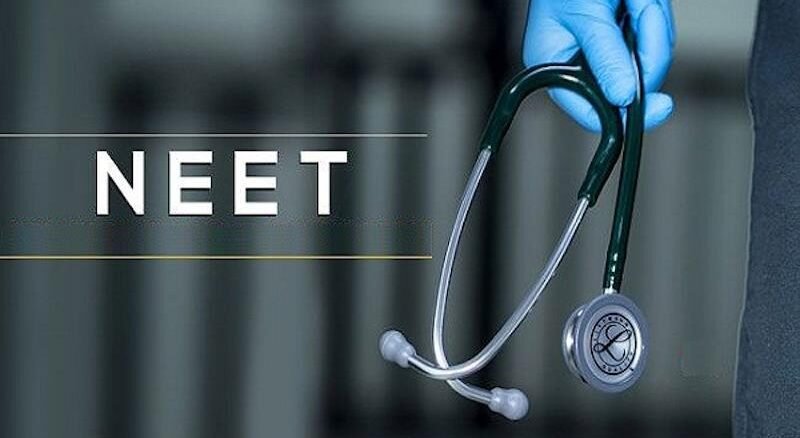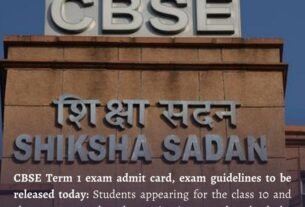NEET UG Reforms : The National Eligibility cum Entrance Test (NEET) is a crucial examination in India that serves as the gateway for students aspiring to pursue undergraduate medical courses. Conducted annually, this examination is essential for admissions to various medical colleges across the nation. NEET not only plays a significant role in determining the academic trajectory of aspiring medical professionals but also ensures a standardized assessment of candidates’ knowledge and skills relevant to the field of medicine.
Despite its importance, concerns regarding the structure and execution of NEET have emerged over the years, prompting calls for necessary reforms. The examination has faced challenges such as disparities in question difficulty levels, varying syllabi across educational boards, and issues concerning the integrity and transparency of the examination process. These challenges have highlighted the urgent need to address the existing framework to enhance the effectiveness and fairness of the examination.
In light of these concerns, recent developments have seen the Supreme Court of India taking an active role in facilitating discussions surrounding NEET UG reforms. The Court has recognized the need for expert opinions and has granted additional time to an expert panel tasked with evaluating and recommending reforms for the examination process. This intervention underscores the gravity of the situation and the collective recognition of the need for changes in the way NEET is conducted.
The proposed reforms aim to create a more efficient and equitable examination system, ensuring that all candidates are assessed fairly and uniformly. By addressing the current limitations, these reforms are expected to acknowledge the diverse educational backgrounds of students while striving to uphold the standards necessary for medical education. As reforms in the NEET examination process are deliberated, the involvement of stakeholders, including experts and the judiciary, signifies a pivotal moment in reshaping the future of medical admissions in India.
Supreme Court’s Decision: Two-Week Extension for Expert Panel
In a significant move, the Supreme Court has granted an extension of two weeks for the expert panel tasked with reporting on the National Eligibility cum Entrance Test (NEET) UG reforms. This decision stems from the recognition that a thorough and comprehensive analysis is essential for formulating effective educational policies. The panel, composed of credible experts in the field, indicated that it required additional time to gather data and insights that would ensure a well-rounded approach to the proposed reforms.
The reform agenda surrounding NEET UG is vital, as it directly influences the admission process for medical and dental colleges across India. By affording the panel extra time, the Supreme Court aims to facilitate a more in-depth examination of various aspects including the candidates’ experiences, the impact of current policies on admissions, and the overarching goals of the educational framework. The panel’s request for more time highlights the complexities involved in implementing reforms that are equitable and beneficial for a diverse student population.
Moreover, this extension allows for consultation with a broader range of stakeholders in the education sector, including educational institutions, faculty members, and student organizations. Their insights are invaluable for ensuring that the outcomes of the reforms address the pressing concerns related to accessibility, fairness, and the quality of medical education in India. It is also an opportunity for stakeholders to present their perspectives on how NEET UG can evolve to meet the changing demands of the healthcare sector.
The Supreme Court’s decision reflects a commitment to upholding the integrity of the educational system by ensuring that the reform measures are both thoughtful and impactful. Ultimately, this additional time may prove crucial in developing a set of recommendations that align with the aspirations of students and the needs of the nation.
Potential Impact of the Proposed Reforms : NEET UG Reforms
The proposed NEET UG reforms have the potential to significantly alter the medical admissions landscape in India. These changes are designed to enhance the overall efficiency and transparency of the admissions process, which can lead to a profound impact on students, educational institutions, and the medical education system as a whole. One of the main implications is the increase in accessibility for aspiring medical students. By potentially revising the examination process and the criteria for admissions, the reforms may create a more level playing field, thereby empowering a wider demographic of candidates to pursue careers in medicine.
Moreover, these changes could instigate broader reforms across educational institutions, compelling them to elevate their standards and improve the quality of education. Enhanced transparency may drive institutions to adopt more robust admission criteria and curricular enhancements, ensuring that students are better equipped for their medical training. As a result, the quality of graduates entering the healthcare system may improve, which would ultimately benefit society as a whole.
The reactions from various stakeholders, including students, parents, and educational authorities, play a crucial role in shaping the reform process. Students often express concerns about the potential increase in competition and the pressure associated with revised examination formats. Parents, on the other hand, may welcome reforms that promise a fairer and more transparent admission process, hoping it leads to better opportunities for their children. Educational authorities are tasked with overseeing the implementation of these reforms and ensuring that they are executed without biases. With clear communication and consensus among these groups, the proposed NEET UG reforms have the potential to foster a more equitable and effective medical admissions system in India.
Conclusion and Next Steps in the Reform Process : NEET UG Reforms
The recent decision by the Supreme Court to grant additional time to the expert panel responsible for reviewing reforms related to the National Eligibility cum Entrance Test for Undergraduate courses (NEET UG) marks a significant development in the medical education sector. This extension underscores the complexity and importance of the reforms aimed at enhancing the admissions process into medical programs across India. Stakeholders, including students, educational institutions, and policymakers, are keenly awaiting the findings and recommendations that will emerge from this panel.
The ongoing reform process is crucial for several reasons. Primarily, it aims to elevate the quality of medical education by ensuring that the admissions process is not only robust but also transparent. The panel’s report is expected to address current deficiencies in the NEET UG framework, including the standardization of assessment methods, and the effectiveness of the current curricula in reflecting the needs of modern medical practice. By focusing on these aspects, the reforms can potentially contribute to producing highly competent healthcare professionals who are well-prepared to meet the nation’s healthcare demands.
In the wake of the expert panel’s recommendations, the next steps will involve detailed discussions among key stakeholders. Educational boards and institutions will need to align their practices with the proposed changes to ensure a smooth transition. This may include revising curriculums, adjusting admissions criteria, or enhancing training for faculty to adapt to the recommended educational standards. Moreover, students should be encouraged to stay informed about potential policy alterations that may impact their future in medical education.
As this process unfolds, active participation from all stakeholders will be vital in implementing these reforms effectively. By remaining engaged and adaptable, the community can work towards a more equitable and efficient admissions process, ultimately benefiting the future of medical education in India.



